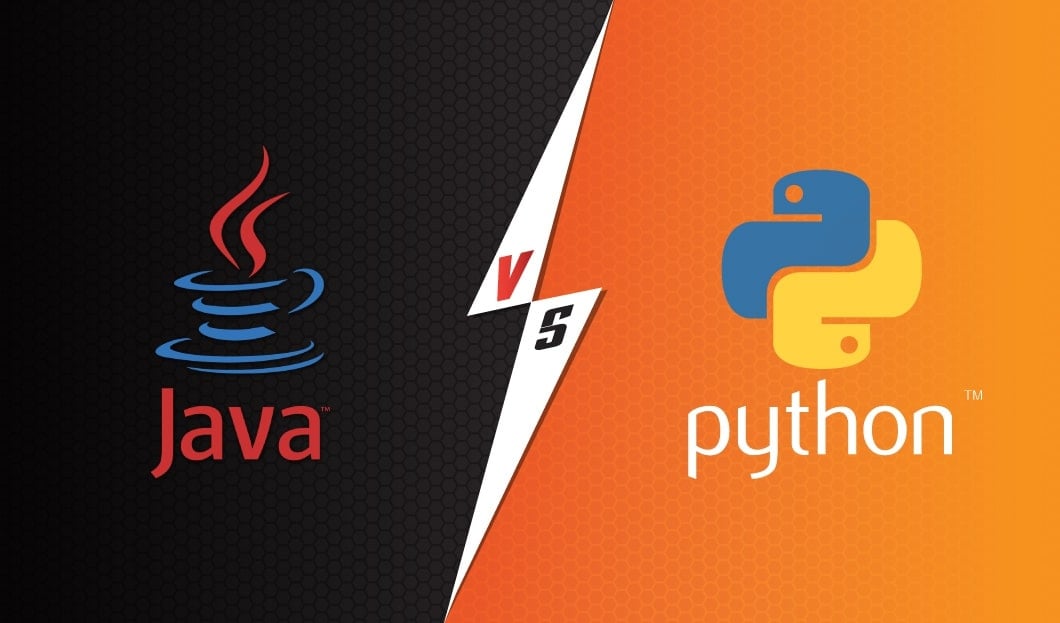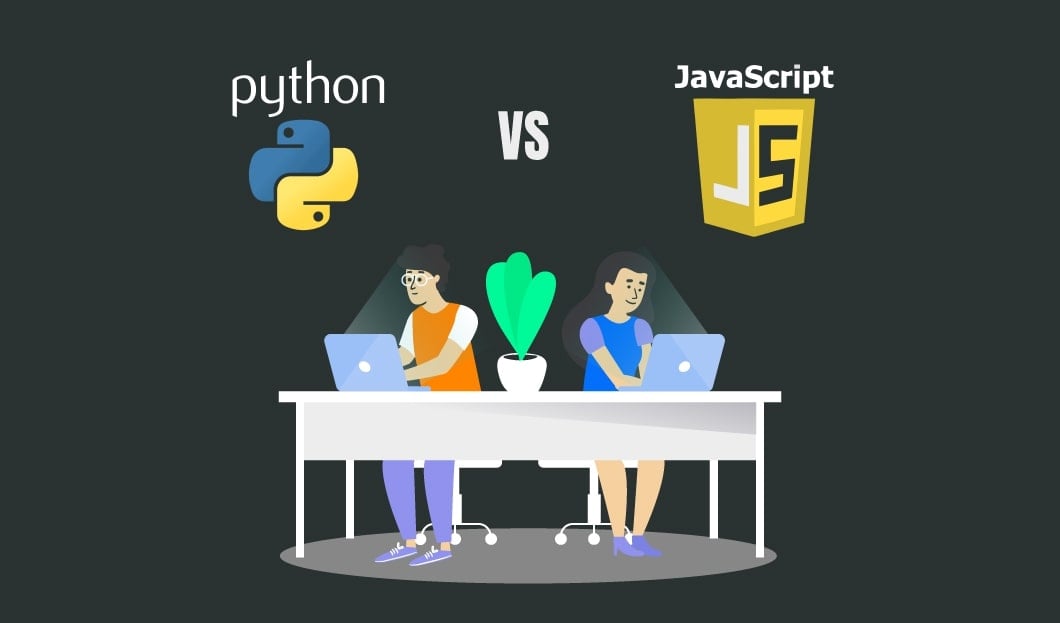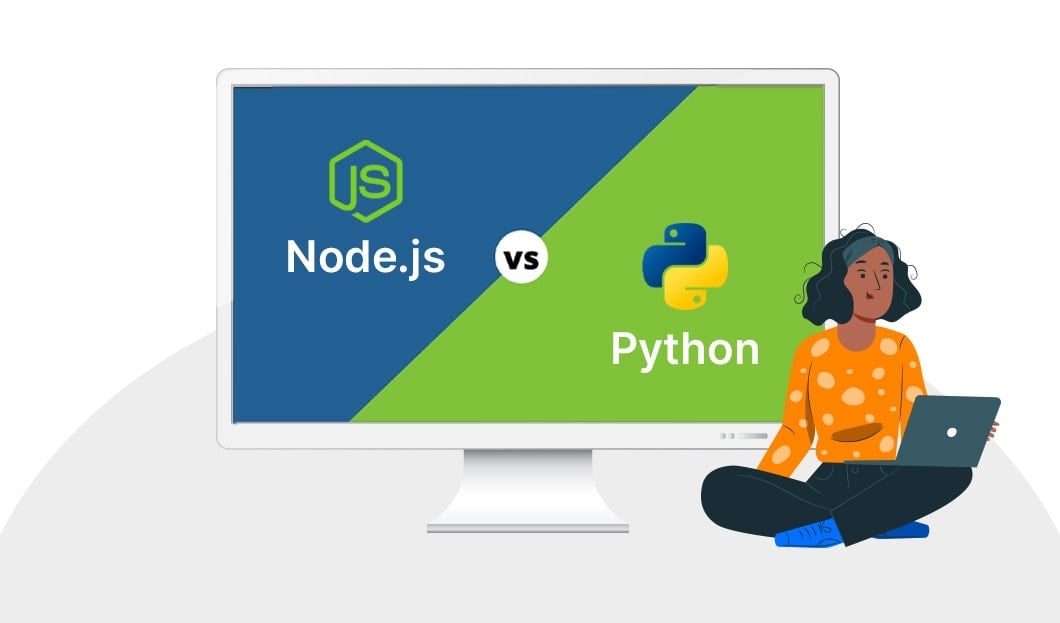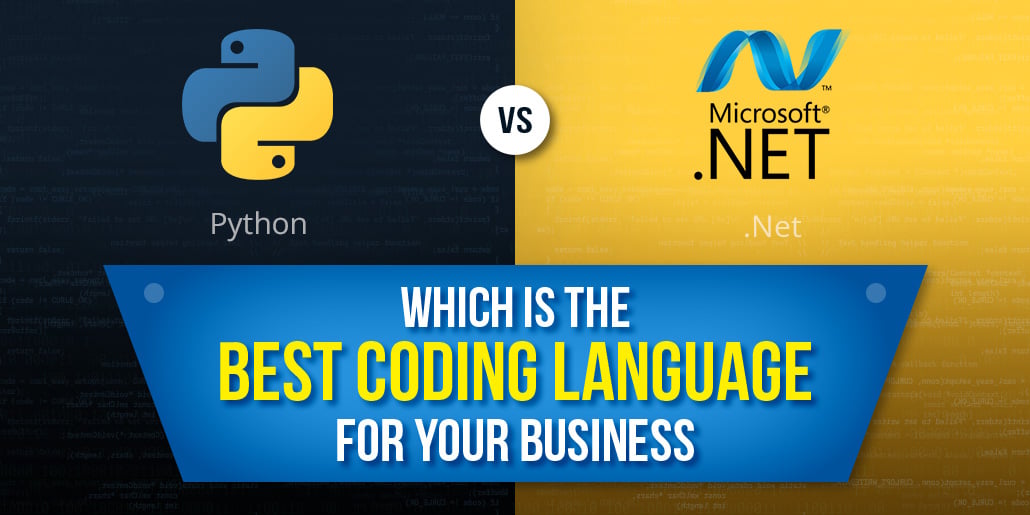In 2022, the web development industry was worth a whopping USD 60709.6 million. It's anticipated to grow at a CAGR of 8.08% percent in the next few years. This makes web development much more important. Businesses will need to keep the web apps coming to satisfy industry demands. That's where the battle Java vs Python for backend development begins. Both languages are quick and impressive and have been here for 3 decades. Top app companies like Google, Netflix, and Microsoft use Python and Java in the backend. However, most businesses don't have the resources or flexibility to use both languages together and must make a choice that will be profitable for the business.
Our article will help you find the best backend programming language between Python and Java. Here's a quick glimpse into what will be shared. We will cover backgrounds, key differences, and the future of both languages.
What is Java? The speedier, stable Companion of Python
According to The Stack Overflow survey, Java is the 6th most popular general programming language today. Java is a general-purpose language extensively used for the enterprise development of web applications and microservices. It's also gaining traction on the Internet of Things, big data and cloud development.
Advantages of Java:
- It's a multi-platform language and works across most systems.
- Best for building object-oriented applications.
- It is a multithreaded language so that you can run several tasks simultaneously.
What is Python? The Simple, Flexible Alternative to Java
Java may be fast, but it does not match the simplicity and flexibility of Python. Guido Van Rossum designed this language in the late 90s, as according to him, the programming language was a way to communicate with developers and not something that just computers understood. Its simplicity remains unmatched even after 30 years of its foundation. Python added 8 million developers to its community in the past two years, and we can clearly see why.
Advantages of Python:
- Python is a user-friendly language and easy to learn and use for all levels of developers.
- Best for automation tasks.
- It's flexible and can be integrated with C and Java.
- Developers do not have to write large code.
Java vs Python: Key Differences
Here’s a quick snapshot of the key differences between Java and Python.
|
Parameters |
Java |
Python |
|
Compilation |
Java is compiled language |
Python is interpreted language |
|
Static/Dynamic |
Statically typed |
Dynamically typed |
|
Learning curve |
Steep learning curve |
Easy to learn |
|
Speed |
Fast |
Medium |
|
Portability |
Java runs on any operating system with Java virtual machine |
Python needs an interpreter on the machine that has to run the code. |
|
Architecture |
Java Virtual Machine provides an environment to execute code and convert code into machine code. |
Python interpreter converts source code into machine-friendly byte code. |
|
Best Used For |
Desktop, GUI, enterprise apps |
Web crawlers, automation system, console apps, ML and AI apps |
Detailed Comparison: Java vs Python
Let's explore the depths through a comprehensive analysis of the two programming languages Java vs Python
1. Java vs Python: Web Development
Python has many weaknesses in web development. For example, Python cannot run in a browser.
In their interviews with Znet, Peter Wang, CEO of Anaconda, argues that Python is becoming a niche language dedicated to Machine learning and AI. He says this when referring to Python's lack of focus towards other areas like desktop, mobile, and web development.
On the other hand, Java is a popular choice for backend web development. For instance, LinkedIn is a professional networking app primarily built in Java and works excellently for LinkedIn search and analytics features. Netflix, too, is a massive supporter of Java and uses it extensively for its web and mobile app development.
2. Java vs Python: Security Battles
Like all the other programming languages, both Python and Java code are secured as long as they are written well.
Python, a high-level programming language, provides many security tools, such as input validation and sanitization. Similarly, Java is highly secure thanks to advanced features like memory management, a JVM machine, a control model, and robust exception handling.
That said, in terms of security, Java is way forwarder than Python, with all vital advanced features available at the developer's disposal.
3. Java vs Python: Stability
Java is more stable than Python because Python’s syntax is tested at runtime. Whereas, while writing code in Java, one needs to check everything before running the code. As a result, Java code is tested well and has far fewer errors than Python.
4. Java vs Python: Libraries
Libraries make life easier by saving developers time. Both Python and Java have extensive databases of libraries. Some of the coolest Python libraries are:
- TensorFlow
- Django
- Selenium
- Flask
- PyTorch
- Scikit-learn
Java is extensively used for desktop development. Useful Java libraries include:
- Httpclient
- Mockito
- DBCP
- Jackson
5. Java vs Python: Performance
Python is widely acknowledged as a slow language. Despite carrying all the good qualities that a good programming language needs, one thing it lacks is speed.
According to Mark Shanon, although Python may not reach the performance levels of low-level languages such as C and Java, efforts are underway to enhance its speed.
Users have noted significant speed improvements in Python 3.11, the latest release, offering optimism for Python's speed advancement. Nevertheless, the current performance crown still rests with Java.
This is attributed to Java's inherent advantage stemming from its JIT compiler, which enables machines to comprehend the code without the need for translation directly.
6. Java vs Python: Popularity

According to the TIOBE index, Python is ranked #1 most popular programming language. At the same time, Java stands at 4th most popular language.

Nonetheless, this provides only a partial view of the situation. Java and Python each excel in distinct domains of use. Java, for instance, remains a top choice for enterprise and desktop applications, taking the lead in these areas. On the other hand, Python gains prominence in domains like data science, machine learning, and AI, where its popularity reigns supreme.
Hence, popularity is subjective. If you are building software that requires artificial intelligence, and deep learning, then Python reigns. Else, when developing desktops and enterprises, Java's popularity is unmatched.
7. Java vs Python: Architecture Difference
Java architecture comprises three parts, i.e., JVM, JRE, and JDK. The main motto of Java architecture is Write Once, Run Anywhere. With Java Virtual Machine, you can write code once and run it on any operating system.
The architecture works as follows.
- Code is first compiled and interpreted.
- Then Java compiler converts Java code into bytecode.
- Following Java Virtual Machine converts the bye code into machine code.
- The machine finally executes the machine code.

Unlike Java, Python’s architecture doesn't involve converting to machine code, Python code is converted to bytecode. Then the Python interpreter turns the bytecode into machine language.
8. Community Support of Java and Python
Java and Python have exclusive communities since both languages have existed for over 3 decades! Python has the second-largest programmers community, with 15.7 million programmers. Java is just behind Python, with 14 million Java developers.

Some popular Python communities are:
Some popular Java communities are:
Types of Applications You Can Build with Java
Now that we have a clear understanding between the functionalities and merits of each of the programming language lets explore, when should you be looking at Java for development?
To understand that let's take examples of popular software using Java.
- Android: One of the world's most popular mobile OS, Android extensively uses Java.
- Uber: World's favorite taxi service app, Uber chose to go with Java due to its open-source nature that allows integration of third-party technologies.
So, Java is suitable for building applications like:
- Mobile apps
- Financial applications
- Embedded systems
- Software Tools
Types of Applications You Can Build With Python
Python is suitable for building applications like:
- Console app
- Administration apps
- Machine learning and artificial intelligence systems
- Command line applications
- Data scrapers
- Image Processors
Popular apps built with Python also include Reddit, Pinterest, Dropbox, Spotify, and Instagram.
Career Opportunities in Python vs. Java
Both Python and Java offer plenty of promising career avenues. Let's understand them in detail. The responsibilities of developers may vary based on their levels of experience and expertise.
1. Entry levelSince entry developers have little experience, they deal with basic programming and debugging. Entry-level developers have 0 to 1 year of experience.
- Basic programming
- Fixing bugs
- Creating user-end documentation
- Performing testing
Typically, mid-level Java developers will have 2 to 5 years of experience. Their day-to-day responsibilities include:
- Writing complex, high-level code
- Planning progress
- Overseeing development team
- Overseeing testing
- Working with vendors
A senior developer usually has over five years of experience and a deep understanding of IT business systems. A senior Java dev will most likely have the following tasks;
- Planning and consulting high-level projects
- Overseeing junior developers
- Watching the financial side of development
Average Salary of Java Developer

According to Payscale, avg salary of a Java developer in the United States is $83,250 per year in the United States.

According to PayScale, the average salary of a Python developer in the United States is $81,416 per year.
Java or Python, Which is Better for the Future?
From a certain perspective, even programming languages that have demonstrated their resilience over time can experience rapid obsolescence in the ever-evolving landscape of the software industry. What matters is how quickly they adapt and meet the ever-changing market needs to stay relevant and competitive.
While Python has firmly established its presence, it is not without its constraints, particularly when it comes to constructing mobile applications or any project requiring a user interface. Peter Wang, the CEO of Anaconda—a widely used Python distribution for scientific computing—emphatically expresses his support for Python. Nevertheless, he emphasizes that for Python to maintain its competitiveness in the years ahead, a clearly defined roadmap is imperative.
The crux of the matter is that unless Python makes substantial strides in incorporating features tailored for web development, Java stands poised to seize the advantage. This dynamic underscore the ongoing tug-of-war between these two languages as they navigate the intricate terrain of the tech industry's future.
Conclusion:
The ongoing rivalry between Java and Python for the coveted title of top programming language shows no signs of abating in the foreseeable future. In this dynamic landscape, the decision regarding which language to adopt hinges entirely upon the specific objectives of your enterprise.
Both Java and Python have successfully carved out their own specialized domains and continue to flourish within them. Python has firmly established itself as the premier choice for crafting applications in the realms of machine learning and artificial intelligence. Conversely, Java maintains its widespread adoption among desktop and enterprise developers, solidifying its position as a stalwart in these arenas.
If you're looking to boost your business, with skilled developers and innovative apps, hire developers at Clarion Technologies is here to help. Lean on our team of highly experienced Java and Python developers who work with you every step of the way to drive your success. Don't miss out—get started on your journey to transformation by hiring our experts today.
FAQs
Q1. Should You Switch from Java to Python?
Ans: The answer is subjective. If your current application requires Python’s capabilities, like machine learning, AI, and automation, then switching to Python makes sense.
Q2. What is the difference between Java and Python?
Java is a statically typed language, whereas Python is dynamically typed.
Q3. Which language is faster? Java or Python
Java is faster than Python.









